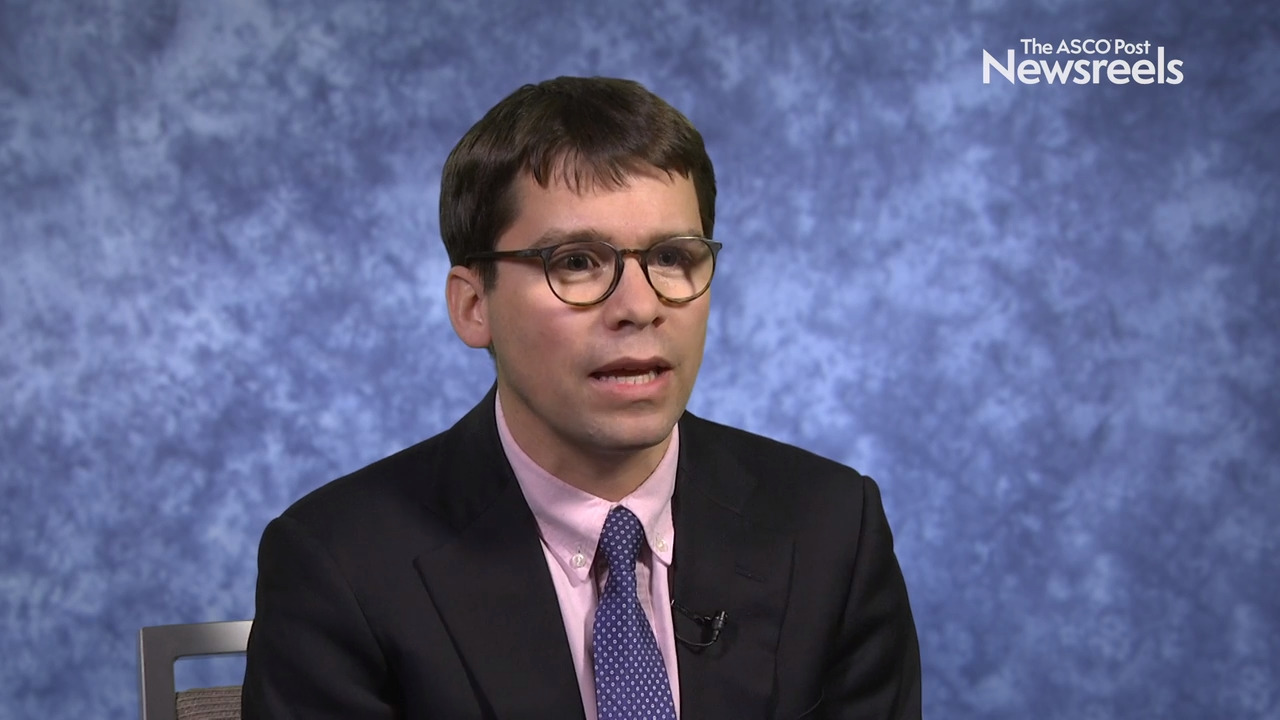Ariella B. Hanker, PhD, on Therapeutic Implications of HER2 and HER3 Mutations in Breast Cancer
2019 San Antonio Breast Cancer Symposium
Ariella B. Hanker, PhD, of UT Southwestern Medical Center, discusses data showing that breast cancers expressing co-occurring HER2 and HER3 mutations may require the addition of a phosphoinositide 3-kinase alpha inhibitor to a HER2 tyrosine kinase inhibitor (Abstract GS6-04).
Nicholas C. Turner, MD, PhD, of The Royal Marsden NHS Foundation Trust, discusses findings from the plasmaMATCH trial, which showed that circulating tumor DNA testing offers accurate tumor genotyping to identify patients with rare HER2 and AKT1 mutations and may enable matching them with targeted treatments (Abstract GS3-06).
Joseph Sparano, MD, of the Montefiore Medical Center, discusses three challenges:
- How can gene-expression profiles and other diagnostic tests be used to guide the use of adjuvant systemic therapy?
- Is it time to reappraise active surveillance?
- Are there diagnostic and therapeutic strategies that can identify tumors at highest risk of metastasis, and novel therapies that can block the spread of disease?
Rashmi K. Murthy, MD, of The University of Texas MD Anderson Cancer Center, discusses data on the efficacy and safety of tucatinib, trastuzumab, and capecitabine, a treatment regimen under investigation for patients with advanced HER2-positive metastatic breast cancer refractory to standard-of-care regimens (Abstract GS1-01).
Joerg Heil, MD, PhD, of the University Hospital Heidelberg, discusses findings on how accurately this technique can diagnose residual disease and pathologic complete response after neoadjuvant chemotherapy in patients with breast cancer. These data may help tailor, de-escalate, and potentially avoid unnecessary surgeries (Abstract GS5-03).
Icro Meattini, MD, of the University of Florence, discusses study findings that showed the less-invasive partial-breast irradiation using intensity-modulated radiotherapy after surgery may be an acceptable choice for patients with early breast cancer, as it is cost-effective, safe, and efficacious when compared with whole-breast irradiation (Abstract GS4-06).





